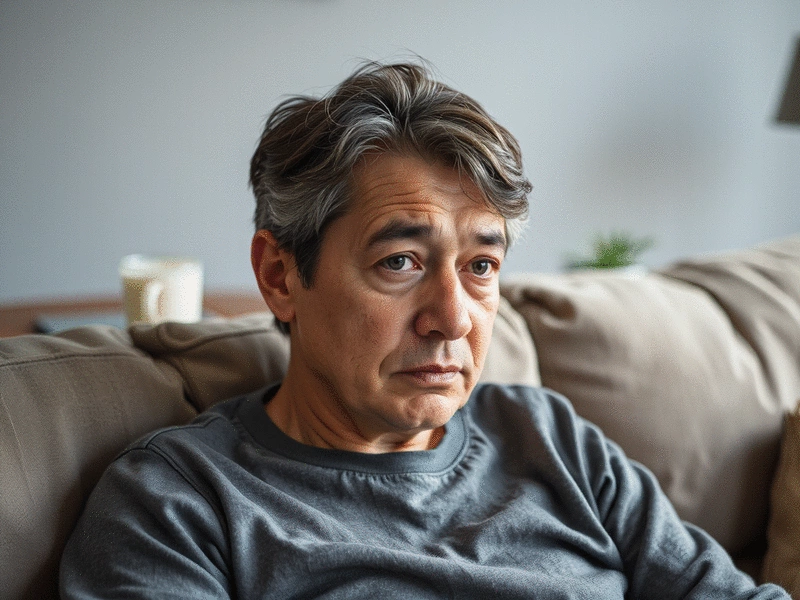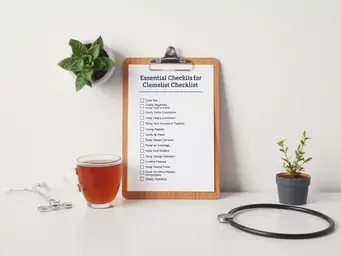Everyday Fatigue
- ✓ Usually temporary
- ✓ Relieved by rest or sleep
- ✓ Related to lifestyle factors
- ✓ Minimal impact on daily functioning
A staggering 70% of cancer patients report experiencing debilitating fatigue, but what does that really mean for those battling leukemia? Understanding the nuances of cancer-related fatigue is vital for effectively managing this challenging symptom. Let's explore the key insights that can empower patients and their loved ones on this journey.
Understanding the distinction between common tiredness and the profound fatigue experienced by leukemia patients is crucial for effective management.
Fatigue is a common experience for many, but when it comes to leukemia patients, it’s often something much more profound. While we all feel tired from time to time, cancer-related fatigue (CRF) can be debilitating and goes far beyond typical tiredness. It’s essential to understand these differences, as recognizing the severity of fatigue may lead to more effective management and treatment strategies. Let's dive into what sets leukemia-related fatigue apart and how it can affect those living with this disease.
Everyday fatigue can often be relieved with a good night's sleep or a short break. However, cancer-related fatigue is a persistent and overwhelming sense of tiredness that doesn't improve with rest. This form of fatigue can stem from various factors, including the disease itself, its treatment, and psychological impacts. Understanding these distinctions can help you or your loved ones navigate the complex landscape of leukemia, as highlighted by resources like Blood Cancer United.
Recognizing these differences is crucial for leukemia patients and their families. It lays the foundation for seeking appropriate support and treatment options.
Cancer-related fatigue (CRF) is a unique and complex condition. It is not merely a feeling of tiredness; it encompasses an overwhelming sense of exhaustion that can interfere with everyday life. Unlike typical fatigue, CRF can feel unrelenting, affecting your physical, emotional, and mental well-being. This fatigue is often exacerbated by treatment, medications, and the emotional toll of a leukemia diagnosis. As research indicates, understanding the multifaceted nature of CRF is key to its management.
As someone deeply committed to patient education, I believe it’s essential for patients and families to understand that CRF is real and should not be dismissed. Recognizing this can help empower patients in their journey.
It's important to pay close attention to how fatigue presents itself. If you or a loved one are experiencing the following symptoms, it may be a sign that your tiredness is more serious than simple fatigue:
Should you notice these signs, it’s wise to consult with a healthcare professional. Early intervention plays a key role in managing symptoms effectively.
The interplay between physical and psychological health is significant, especially in leukemia patients. Chronic fatigue can lead to feelings of helplessness and frustration. It's not uncommon for patients to experience anxiety or depression as they grapple with their condition. This emotional burden can further exacerbate fatigue, creating a vicious cycle. Studies have shown that addressing these psychological aspects is crucial for overall well-being.
It’s essential to address these psychological aspects of fatigue. By fostering open communication with healthcare providers and seeking support from loved ones or support groups, patients can find strategies to break this cycle and regain a sense of control in their lives.
Did you know? Keeping a fatigue diary can significantly enhance your understanding of cancer-related fatigue (CRF). By recording your daily energy levels, symptoms, and emotional state, you can identify patterns that may help you and your healthcare team tailor your treatment plan more effectively. This proactive approach not only empowers you but also facilitates more meaningful conversations with your doctors.
A: Everyday fatigue is usually temporary, relieved by rest, and related to lifestyle factors. Cancer-related fatigue (CRF) is chronic, persistent, not relieved by rest, caused by the disease or its treatment, and has a debilitating impact on daily life.
A: Key symptoms include fatigue that persists despite adequate rest, difficulty concentrating or remembering, physical weakness or lack of energy, and emotional distress such as anxiety or depression.
A: Chronic fatigue can lead to feelings of helplessness, frustration, anxiety, and depression, creating a vicious cycle that further exacerbates fatigue and affects overall quality of life.
A: Monitoring symptoms helps patients and their healthcare team identify patterns, gain valuable insights into their health, and make informed decisions to tailor treatment plans more effectively.
A: Support is available from healthcare professionals, support groups, nutritionists who can help with energy-boosting meal plans, and mental health professionals to manage the emotional toll.
Understanding fatigue in the context of leukemia is essential for patients and their loved ones. It’s not just about feeling tired; it’s about recognizing how fatigue can be a significant symptom of the disease or its treatment. By monitoring fatigue and other symptoms closely, you can gain valuable insights into your health. I encourage you to keep a vigilant eye on how you’re feeling day-to-day, as this can help you and your healthcare team make informed decisions. Here are some key points to remember:
By understanding these aspects, you can empower yourself in your care journey! Embracing knowledge is a significant step toward feeling more in control.
Monitoring your symptoms is not just about tracking fatigue; it’s a holistic approach to your health. This includes being aware of signs like bruising, infections, and any other unusual changes. As someone deeply committed to patient education, I believe that informed patients are empowered patients. Here’s how you can effectively monitor your symptoms:
Being proactive in monitoring can significantly impact your journey. It provides you and your healthcare provider with essential information to manage your treatment effectively.
Don’t hesitate to reach out for support! Feeling overwhelmed is completely normal, and you don’t have to navigate this journey alone. Connecting with healthcare professionals, support groups, and communities can provide invaluable resources and encouragement. Here are some options to consider:
Remember, seeking help is a sign of strength, not weakness. Together, we can replace fear with understanding and build a community of support and hope!
Here is a quick recap of the important points discussed in the article:

 Understanding leukemia can feel overwhelming, but breaking it down into manageable pieces can make t
Understanding leukemia can feel overwhelming, but breaking it down into manageable pieces can make t
 Receiving a leukemia diagnosis is often a daunting experience shrouded in uncertainty. The journey c
Receiving a leukemia diagnosis is often a daunting experience shrouded in uncertainty. The journey c
 Being informed about leukemia symptoms can empower you to take proactive steps toward your health. R
Being informed about leukemia symptoms can empower you to take proactive steps toward your health. R
 As we delve into the complexities of living with leukemia, it's crucial to recognize that this journ
As we delve into the complexities of living with leukemia, it's crucial to recognize that this journ